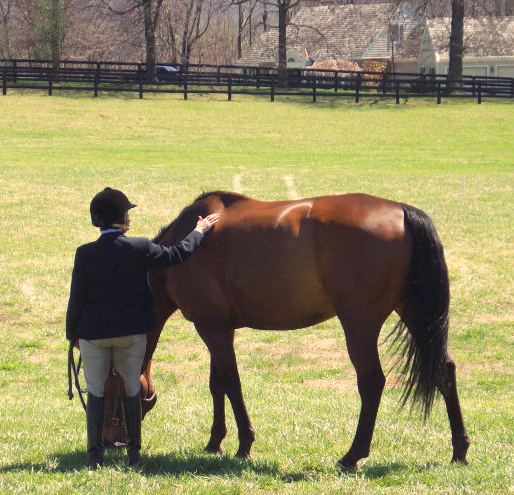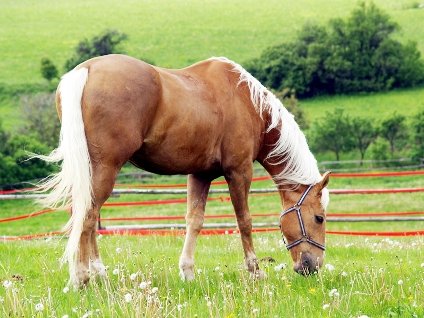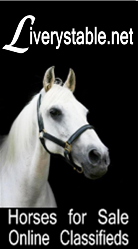 I attended a training clinic several years ago, put on by a good friend of mine, Kevin Wescott, a horse trainer from west-central Nebraska. It was a general horsemanship clinic, where local people brought their own horses and asked Kevin to help them through issues they were having, or give advice on their riding, and so on. I was there with my mare Daisy, whose behavior at this clinic you might remember from my previous blog post. But aside from that, I observed something at this clinic that has stuck in my mind ever since.
I attended a training clinic several years ago, put on by a good friend of mine, Kevin Wescott, a horse trainer from west-central Nebraska. It was a general horsemanship clinic, where local people brought their own horses and asked Kevin to help them through issues they were having, or give advice on their riding, and so on. I was there with my mare Daisy, whose behavior at this clinic you might remember from my previous blog post. But aside from that, I observed something at this clinic that has stuck in my mind ever since.
There was a woman at the clinic with a very eye-catching horse. I mean, the minute he left the trailer, you couldn’t take your eyes off of him. He was at least sixteen hands, a bright bay with four white socks, a Warmblood with a lot of attitude. The rest of us were riding our Quarter Horses or ponies around, and here comes this woman leading her Warmblood into the arena….we all just stared.
She lunged him for about half an hour, I remember. He was tacked up in English gear, which also was interesting to us Western riders, and the level of this horse’s energy was just over the top. He pranced his circle around her, head high, eyes rolling, a picture of perfect health and exuberance. The vibe I immediately got from watching the woman was that she was definitely over-horsed.
She was tall and strong, and used an authoritative voice and body language as she worked with the bay gelding, but I sensed an air of desperation about her, and it gave me a strong curiosity to see her ride him and watch what would happen. Like I said, the horse was just barely touching the ground, he was so energetic on the lunge line.
This clinic was not very structured, as far as one-on-one sessions. People were tacking up, leading in and out of the arena, riding circles, working in the center on their own horse, and then there were spectators in the stands, or people hanging around the fence watching. Kevin worked with individuals at one end of the arena by the stands, and answered questions for horse owners and specatators, keeping a running dialogue explaining what he was doing (and why he was doing it) with each horse.
I don’t remember the lady’s question when she approached Kevin with her Warmblood, after warming him up. I remember watching them stand there at the close end of the arena, the Warmblood still high-headed but standing properly as Kevin talked with his owner. The woman, however, seemed upset. She was explaining the issues she was having with her horse, and Kevin was asking her background questions and finding out what needed addressed and how he might help her. Kevin did take the horse from her for a moment, or was at least standing at the horse’s head, stroking it as he talked. The horse had the chance to smell, feel, and get acquainted with Kevin as they stood there.
Then he said something decisive to the woman, directing her to lead the horse away to the center of the arena, and he’d be over there soon, or whatever. The woman turned to walk away as directed, ignoring that her horse was still mentally “hooked” to Kevin, and basically jerked him by the mouth without looking over her shoulder as she just marched away without a backward look.
Kevin stopped her immediately, and said, “Wait just a moment, you were incredibly rude to your horse right there.” He spent another five minutes explaining to the woman that by not being sensitive to the horse, who didn’t understand which person had the reins, who was unceremoniously jerked by the mouth for no fault of his own that he could ever understand, she was most likely at the root of all her horse’s problems. I felt really embarrassed for her, being reprimanded so soundly in front of everyone at the clinic, but his point was so good it has stuck with me for a long time, as I’m sure it also has with the others who observed it.
He made her practice a bit, with leading off from a stop, where the horse is not certain which person is holding the reins. He asked her to give a clue to the horse first, and a gentle pull if he didn’t follow after her, rather than being so abrupt. But it wasn’t the exact action that Kevin was addressing. It was the woman’s attitude of not thinking what the horse was thinking.
There is a sensitivity that you need to have around horses if you’re going to handle them. Ignoring the horse’s feelings will result in a confused, disgruntled, vindictive, and dangerous horse. I have seen so many examples of this over the years, and while it is usually a beginner error, it can also be prevalent in people who have been around horses their whole lives.
My dad is not very considerate of his horse at times. He is fond of horses, but he is a rancher, first and foremost, and when he’s in the middle of cattle work, the horse’s comfort is not always a top priority with him. I can think of so many times watching my dad count a herd of cattle through a gate. We’ve gathered the herd, they’re pushed to the gate opening, and Dad rides his horse up to the gate to narrow it and let only a few trickle through at a time, so he can get a good count. It’s the best way to count a herd of cattle and be sure they’re all there, and it’s very important, and it never occurs to him what’s going on with his horse in a high-tension moment like gate-counting.
But the poor horse…Dad rides kind of high-handed anyway, usually in a hackamore or curb bit, and when counting, he’ll just tighten his reins to keep the horse from stepping too far forward in the gate and cutting off the cattle, but then he’ll spur the horse an inch forward to slow the flow of cattle through the gate if they start to bunch up and go all at once. So he’s simultaneously jerking and spurring his horse. Dad’s horses usually understand this type of treatment, and stand there poised on their tippy-toes, ready to jump forward two inches with the touch of the spur, or back up an inch if the already-taut-reins are pulled even tighter. That’s just how Dad’s always done it, but that doesn’t make it right.
By watching, you can learn so much….what to emulate, what to avoid. But the overall lesson is the need for patience and understanding. A horse gives up so much of its free will, it’s only a fair trade to keep his comfort in mind when handling him. I think the sensitivity you show to your horse will be repaid again and again to you in how he performs. So don’t be rude.

